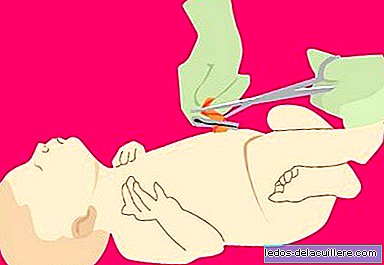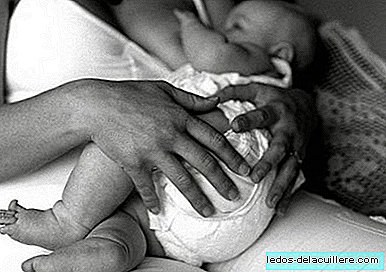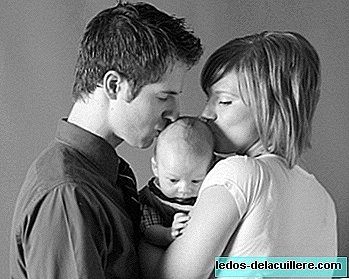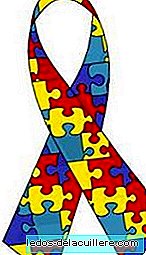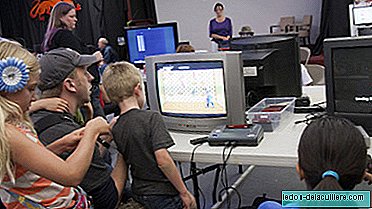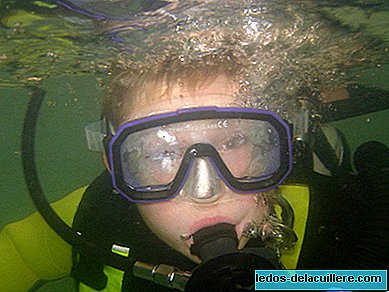
After finishing swimming lessons in July, I asked my oldest son if he would like to do any special activity during the month of August, something like photography or English (I thought it would be appropriate), but he replied that he wanted learn to dive.
Diving? With only eight years? Ah, of course! ... This must have something to do with how safe you feel in the water and having the new glasses and the tube. But diving is not moving two feet from the surface breathing outside air (or at least it is not exclusive). I looked for information to make a decision (assuming I had found a place close to home where I could enroll), and the first thing I found is an article translated and adapted by Miquel Pontes whose original was written by a doctor in biochemistry (and coordinator of diving safety), called Larry 'Harris' Taylor. He is the author of more than 100 articles but I talk to you about "Why I Do NOT Train Kids", or why don't I teach children to dive?
In addition to highlighting the most important aspects of this document, I would like to clarify some concepts that I have found about the existing dive modalities for children.
At what age can you start diving?
There is a diving certification agency called PADI that performs recommendations for standard diving programs. According to this entity, the minimum age to practice this sport as we know it (at some depth, with complete equipment and oxygen bottle), would be 14 years.
However, Dr. 'Harris' Taylor is conservative and states that 'the child should not dive until the parents entrust their child with the family car to drive to the dive site.' That is to say: although some American medical associations establish the minimum age at 16, some risks may still persist during adolescence, and therefore it would be reasonable to wait for the coming of age
But there is the possibility that from the age of eight the little ones start with a 'PAD Bubblemaker' program (in the pool or at sea), and when they exceed that level, they can enroll in PADI Scuba Diver or PADI Open Water courses (from 10 years). At least in the Palamós Dive Center (Girona).
There are also trainers who talk about the possibility of snorkeling (snorkeling with breathing tubes), and although the minimum age is also set at eight years old, I have read expert parents stating that there is no such limitation if they are transmitted to children the risks of diving, and the precautions to take.
Can it be dangerous for children to dive?
Before continuing I would like to highlight a phrase from Dr. 'Harris' Taylor, who speaks of adolescence as a temporary situation, and thus refers to their reluctance for children to practice diving. He goes on to say that he does not recommend it, but anyway we all end our childhood and have plenty of time to devote ourselves to hobbies more typical of adulthood.
It makes us reflect on the myth of 'the maturity of children', that is to say one thing is that our children grow, develop, have autonomous thinking and gradually gain independence. And another thing is that they are mature, because if they were, they would not need the parents.
Let us turn to the reasons why Dr. 'Harris' Taylor advises against this practice in children:
There is no way to know how many dives, at what depth, with what duration, with what mixture of gases, for what type of personality or at what stage of development they are necessary to cause this personality change after a decompression incident. As a reason to restrict children's access to recreational diving, use 'The consequences that may imply a negative personality development are considered serious'.
We talk about a sport where it is impossible to define all possible scenarios and therefore inherently dangerous for a specific thinker unable to solve an emergency. The difference between tragedy and a wonderful day of diving can lie in the ability to function beyond the concrete, because each crisis requires flexibility ... something that simply does not exist in the concrete thinking of a child.
Compensation: basically, the eustachian tubes of children are small, flat and horizontal compared to those of adults. This orientation makes it more difficult for the ear to drain the water and, as a result, ear infections are much more common in children than in adults. In addition, in children, the eustachian tube closes when they swallow, while in adults, it opens. In a situation of "negative pressure" the Eustachian tube closes and air movement becomes impossible. Children compensate worse or not at all.
While the compensating maneuver can be an easy task for an adult diving student, It becomes a serious problem for a child, since the same techniques are not valid when the eustachian tubes are not functional.
In addition, in a document on eardrum perforations from Kids Health, I have read that 'if you plan to dive, follow an immersion course and obtain a diving certificate. Make sure you learn to match the pressure on both sides of the eardrum. Do not dive when you are cracked or have an ear or sinus infection. ' This is a recommendation addressed to teenagers
- Other aspects to highlight and questions to ask before making the decision: narrower airways suggest a higher risk of barotraumatism, the magnitude of this increased risk is unknown; children, due to their lower body mass, they cool easily and therefore the greater susceptibility to hypothermia of children requires close monitoring by the instructor; What effect can diving at recreational depths have on the body in the growth stage?
I think in any case the most sensible recommendation I could make if you want your children to dive (and you are not experts, of course) It is on the one hand that you consult the pediatrician, and on the other hand that you ensure that the center where you would like to enroll has certifications, and the staff is sufficiently experienced and trained to advise you.



